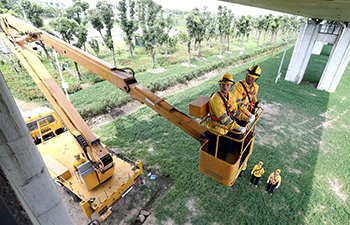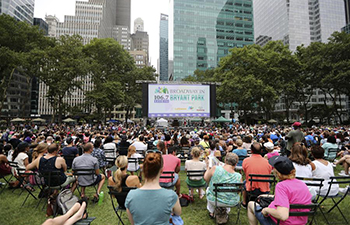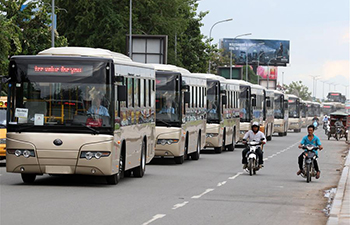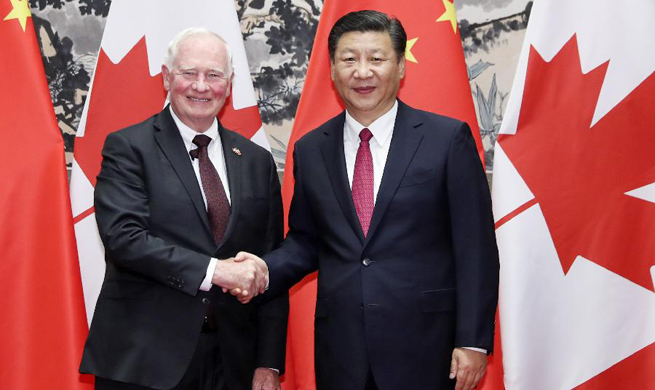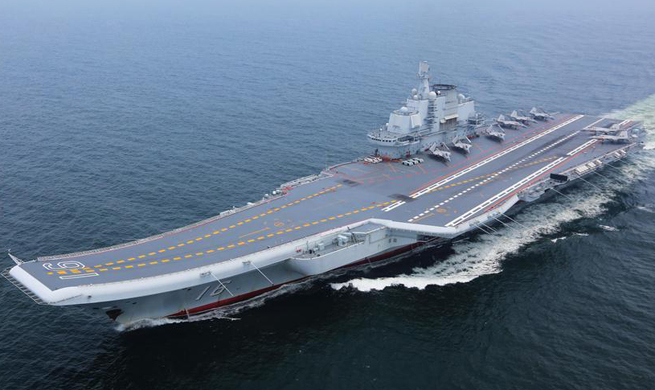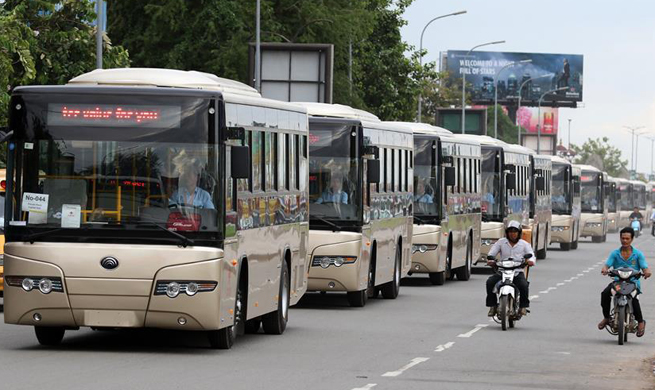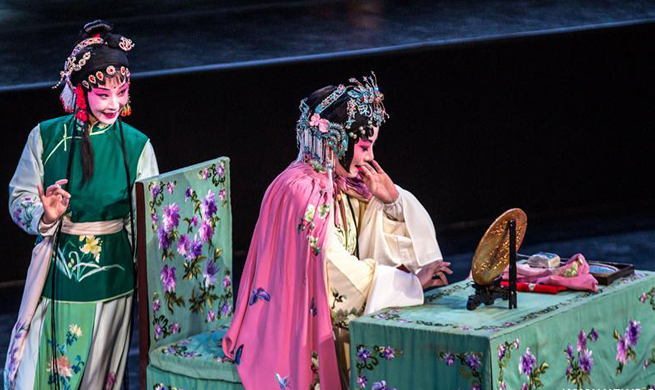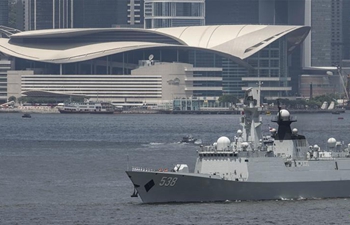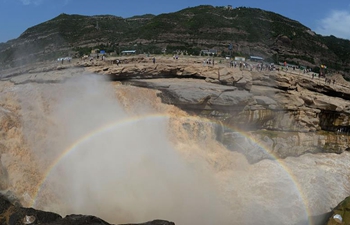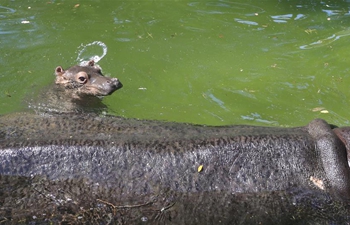TOKYO, July 14 (Xinhua) -- Debates were still going on in Japanese academic and media societies days after Tokyo and the European Union (EU) agreed in principle to a trade pact after four years' talks.
The announcement on the Economic Partnership Agreement (EPA), which was hailed by an official Japan-EU statement as "highly ambitious and comprehensive," was made on July 6 in Brussels, a day before the G20 summit was to be held in Hamburg, Germany.
"Amid moves of protectionism, we could demonstrate our commitment to raising the banner of free trade," Japanese Prime Minister Shinzo Abe told a press conference attended also by European Council President Donald Tusk and European Commission President Jean-Claude Juncker.
Proponents said the deal, under which trade barriers between Japan and the EU are expected to be significantly lowered for a sweeping array of products, is positive for pushing for free trade.
Akio Mimura, chairman of the Japan Chamber of Commerce and Industry, said the deal would put brakes to the protectionism momentum in the world.
Sadayuki Sakakibara, chairman of Keidanran (Japan Business Federation), said the deal would not only boost economic growth and create jobs for the two sides, but also make a great contribution to shaping a free and open world economic order.
However, the overall mood in Japan has not been very blissful as there are still concerns and doubts over the EPA, especially in the Japanese farm sector.
Masayuki Nishihara, chief of the Hokkaido Farmers Association, said the group is firmly against the framework deal which was hastily reached and could have vital impacts on Hokkaido agriculture.
An editorial of the Asahi Shimbun said the agreement was hastily reached on the eve of the G20 summit, with both sides having their own agenda, while problems remain to be solved.
Further discussions will have to be held on some parts of the deal, including rules on investment and investment disputes solving mechanism, and there could be changes as the deal still needs to be formally signed and ratified, according to the editorial.
It is noted that part of the reasons for the slow progress of the deal in the past years was because of the Trans-Pacific Partnership (TPP), a trade pact designed to involve 12 countries which was previously spearheaded by the United States.
Japan has focused most of its attention on the TPP until Donald Trump's election last year. The new U.S. president quickly decided to pull his country out of negotiations over the pact, which has accelerated talks between Japan and the EU.
Li Bo, a research fellow at the International Center for Chinese Studies in Aichi University, said the Japan-EU EPA, if coming into effect, will boost trade between the two sides as it promotes free trade and stimulates investments.
But he warned that bilateral and multilateral free trade deals always have a certain degree of exclusivity, which means signatories of such deals would grab more interests while non-signatories would have to shoulder opportunity costs.




